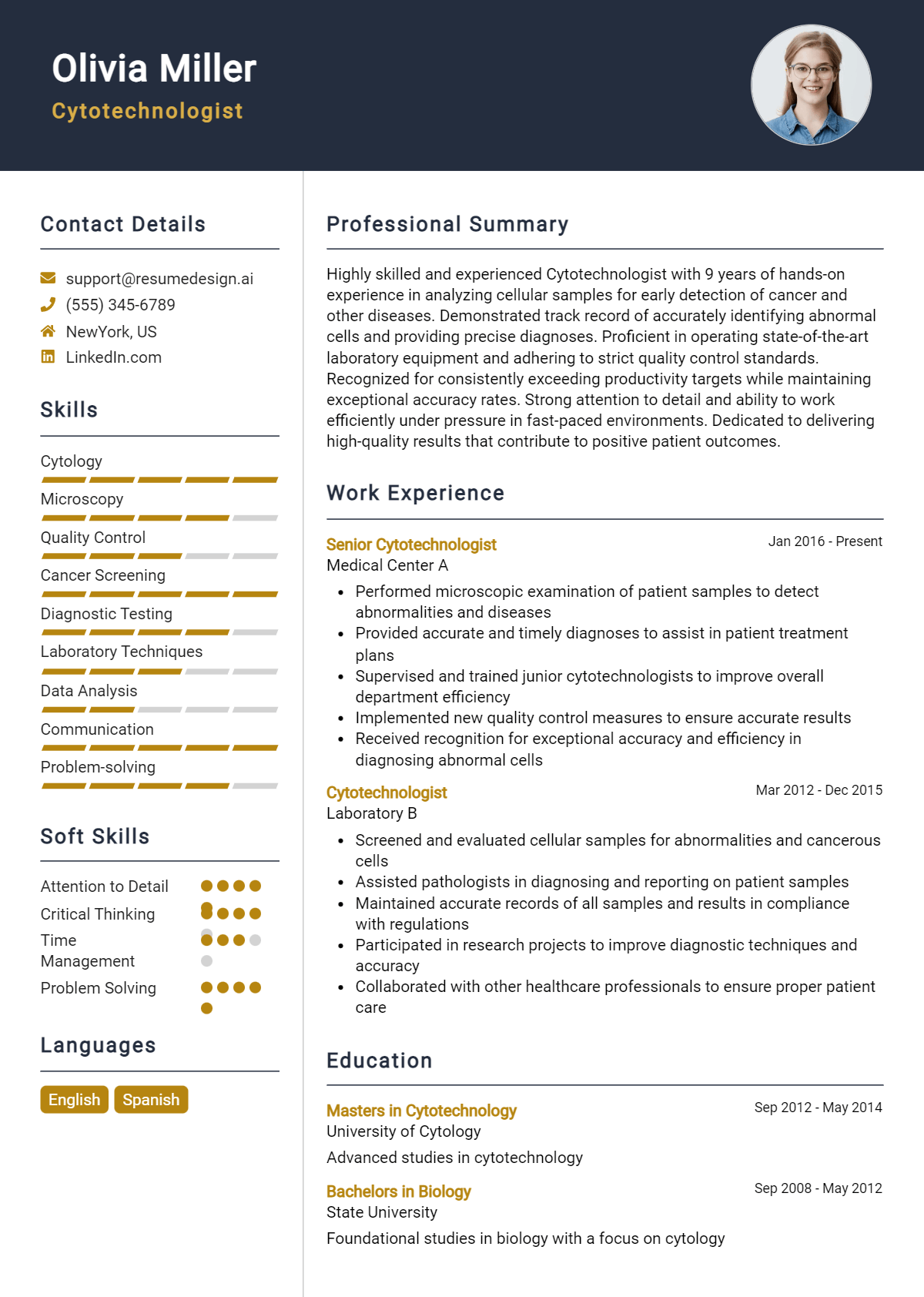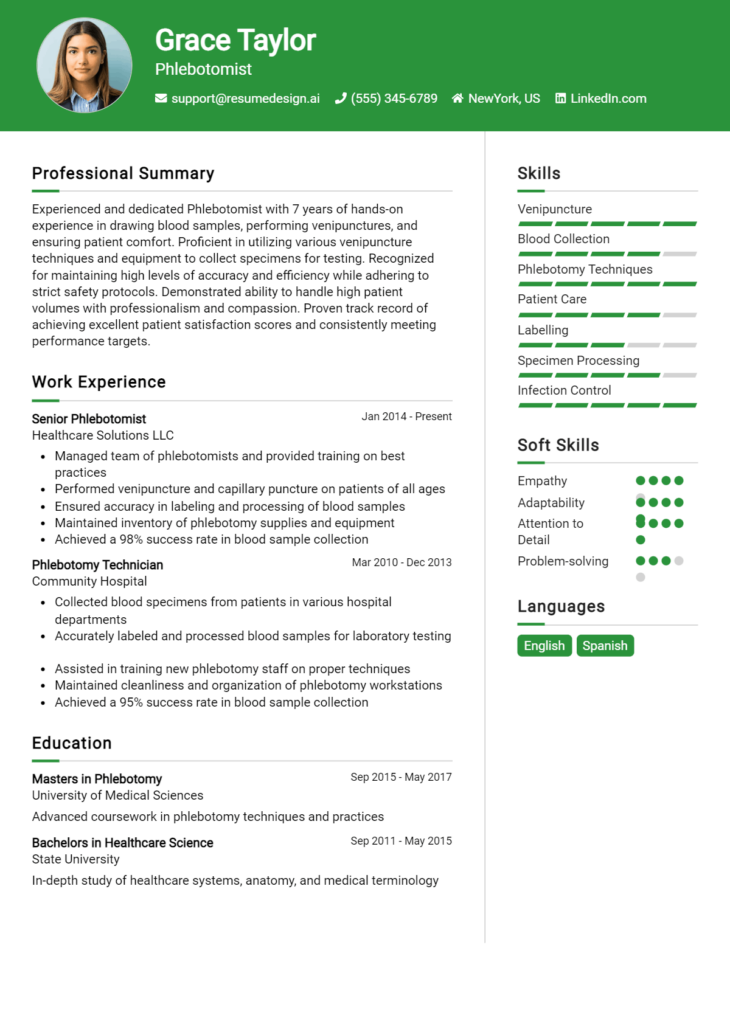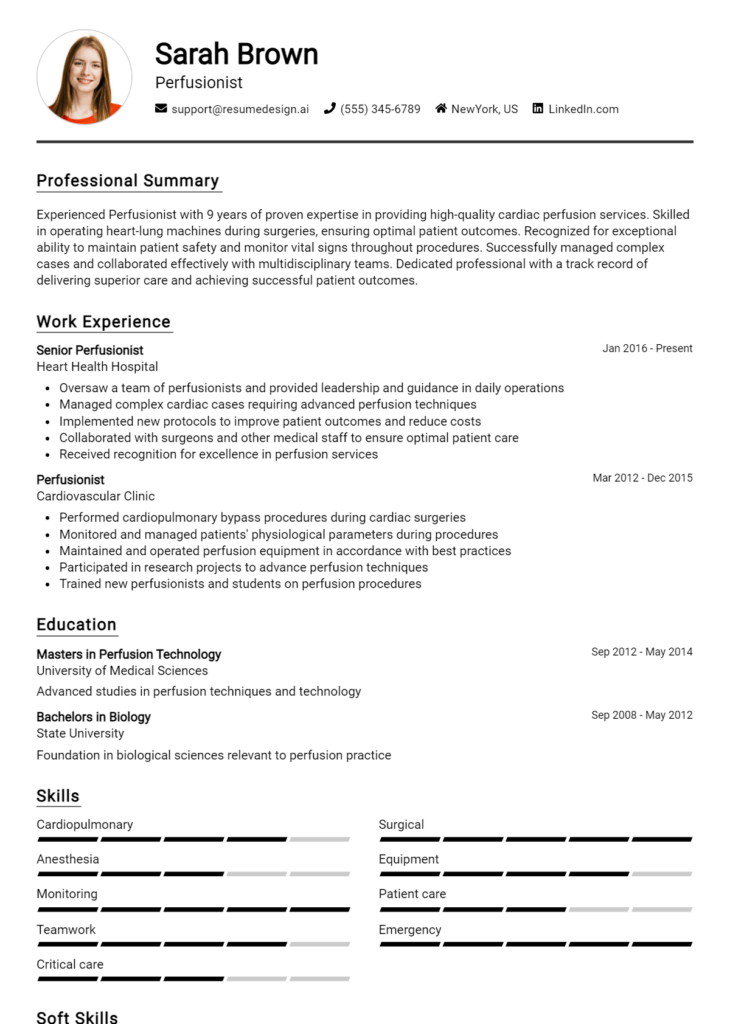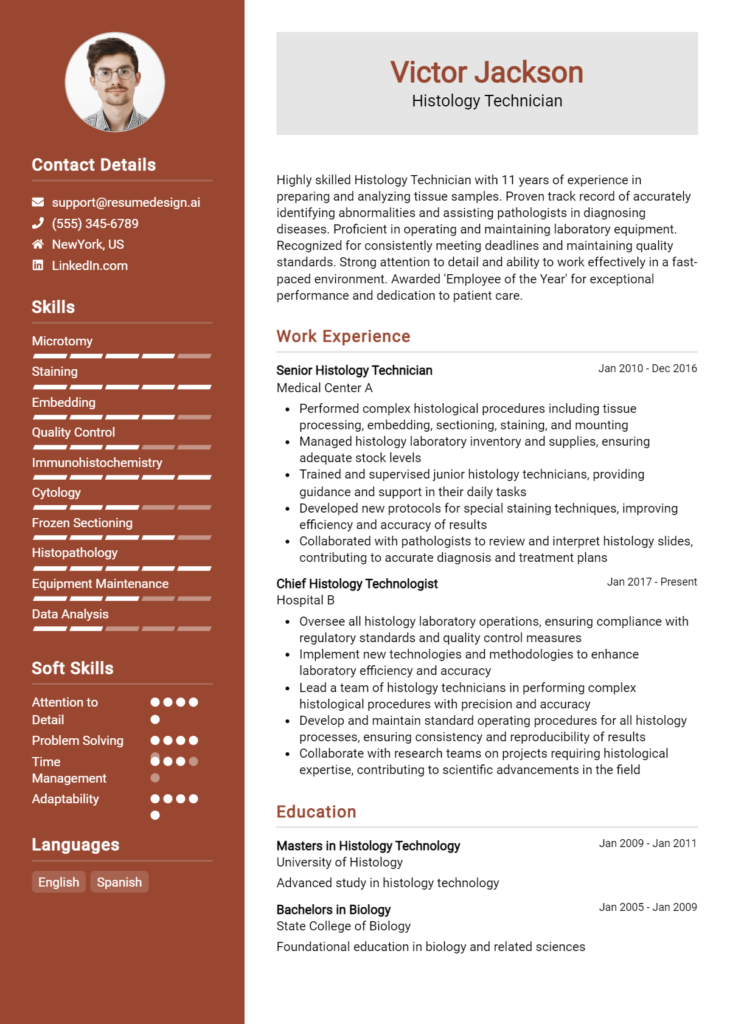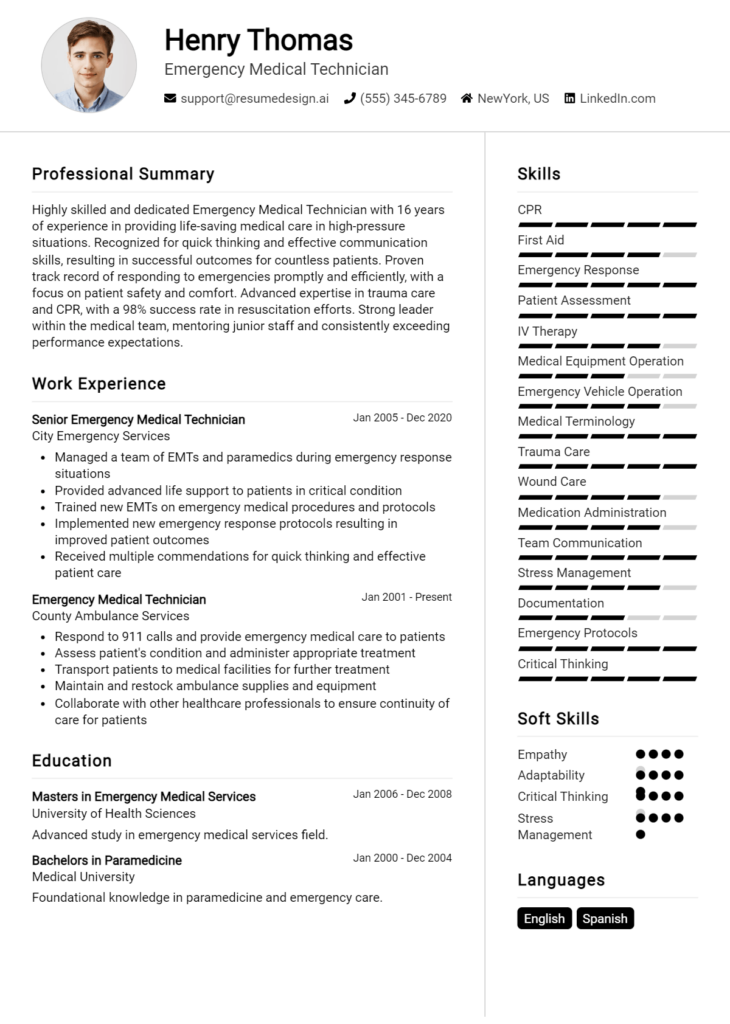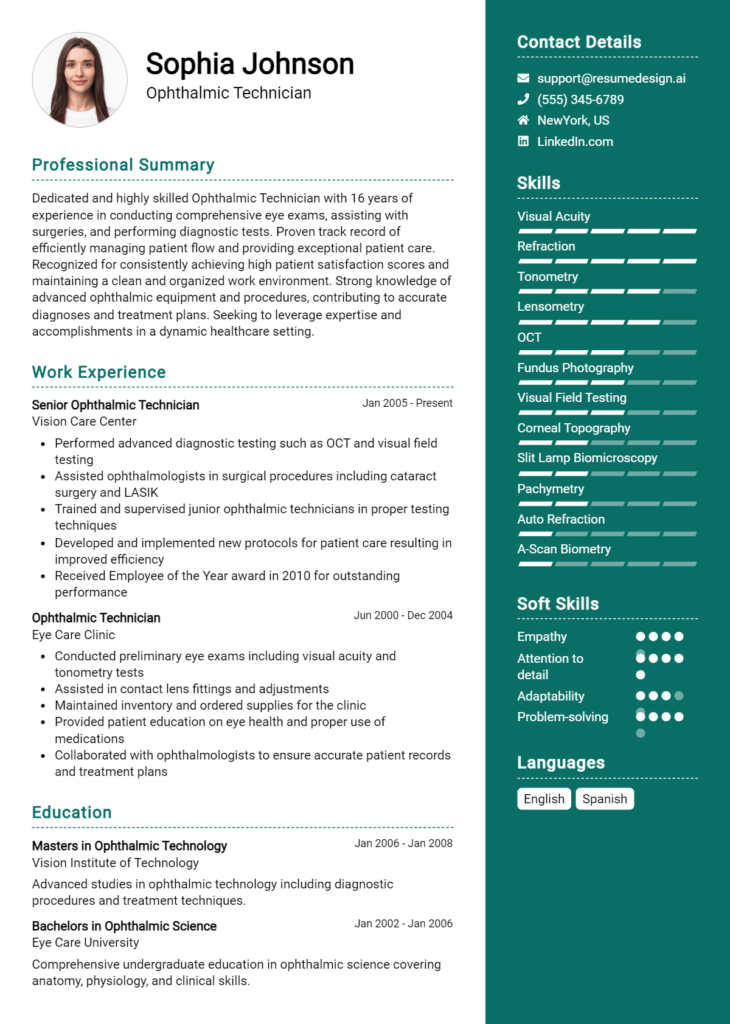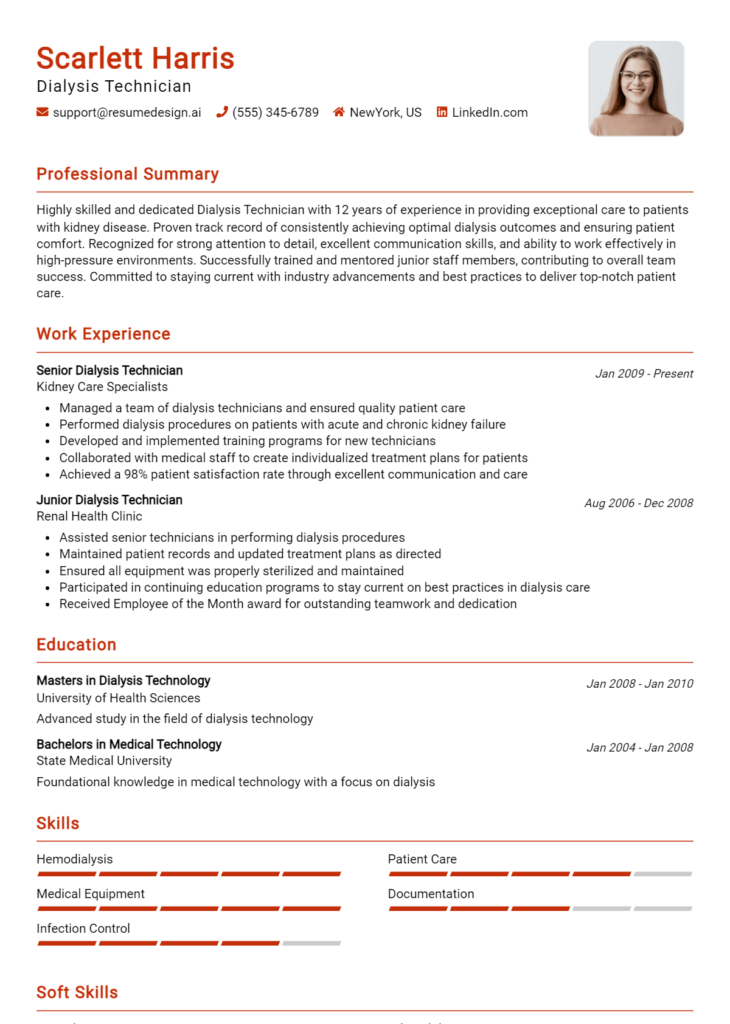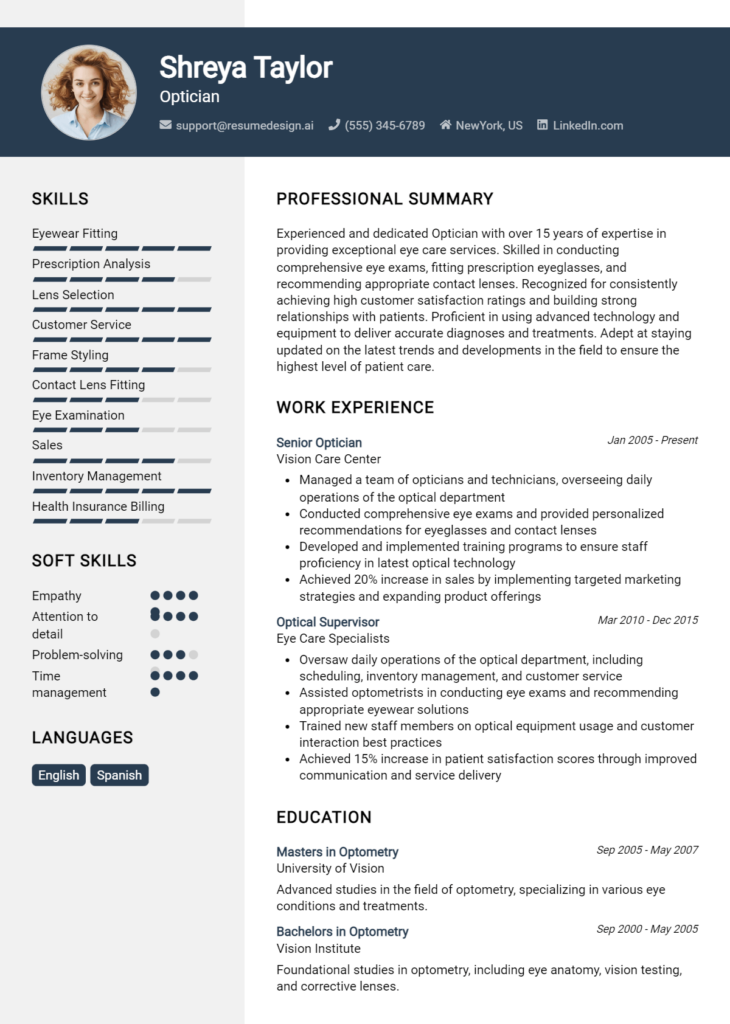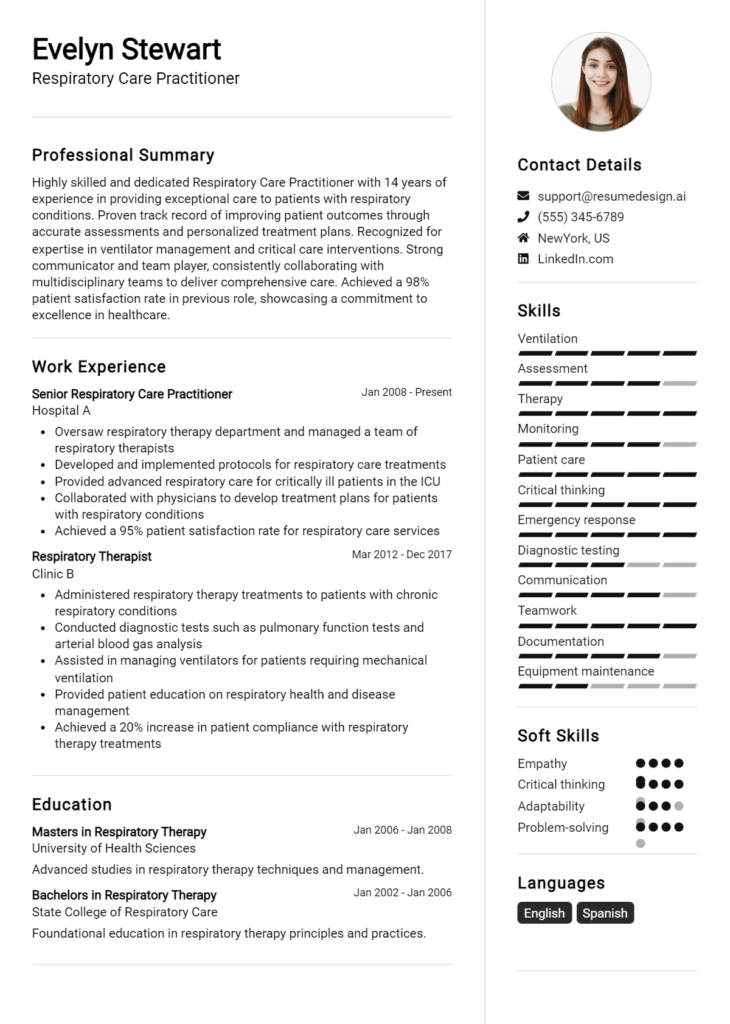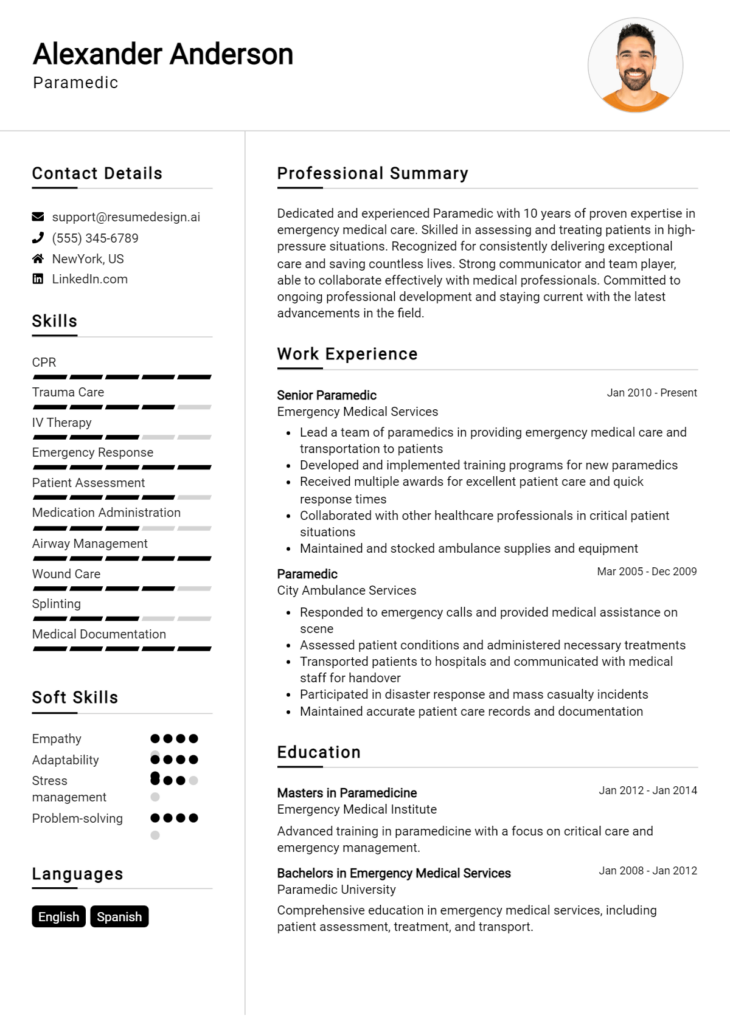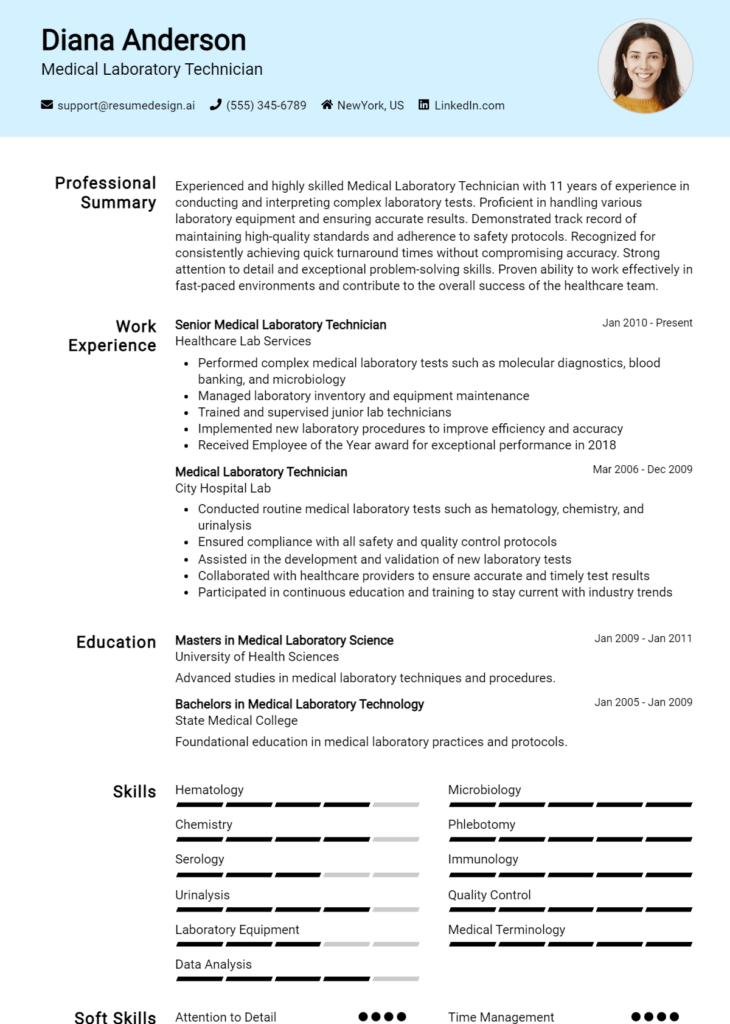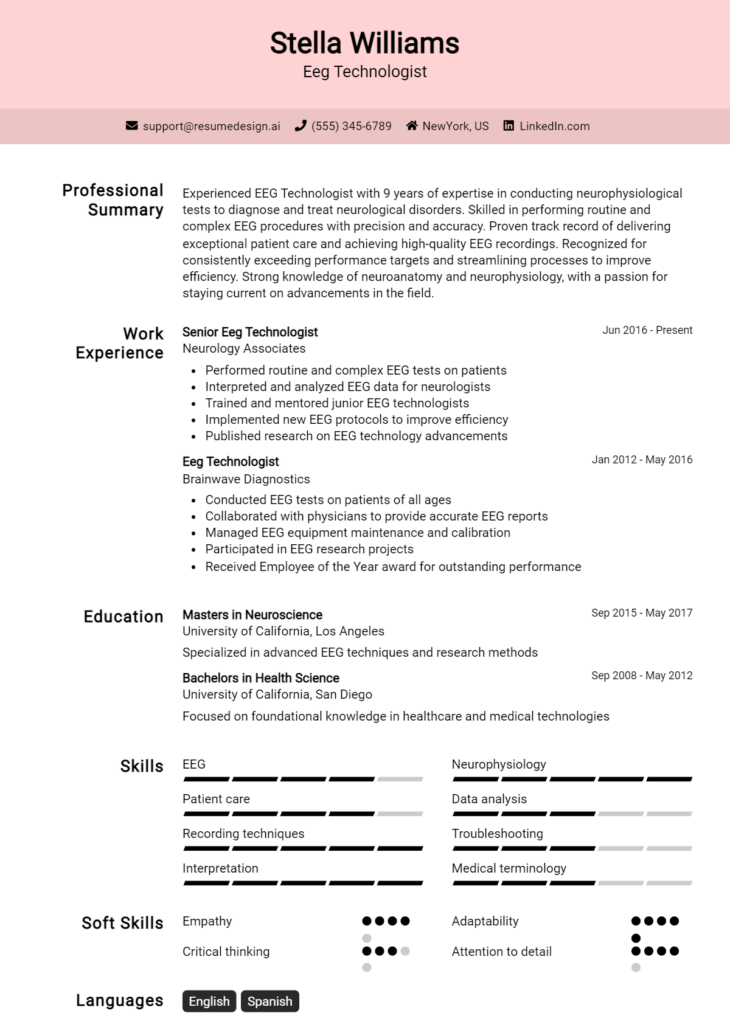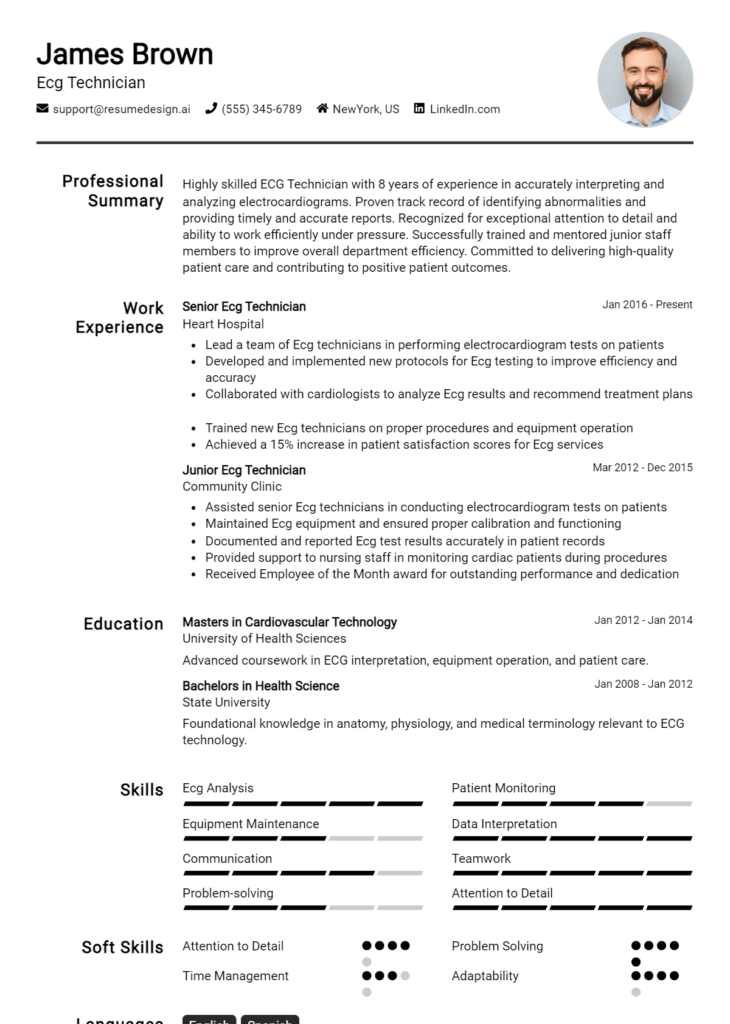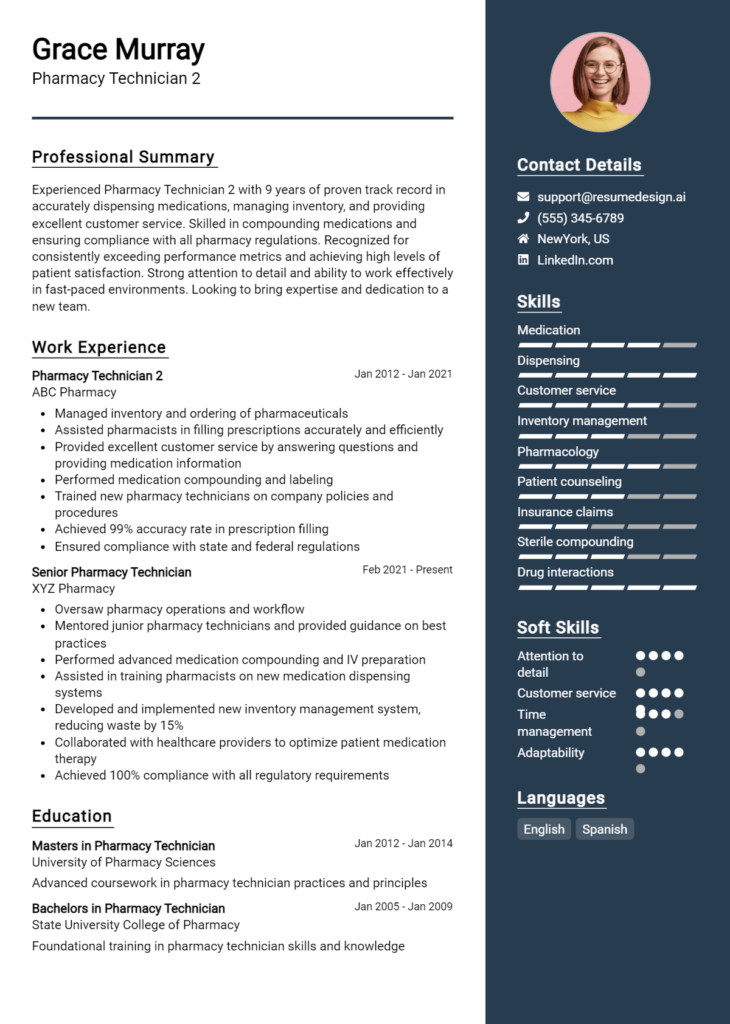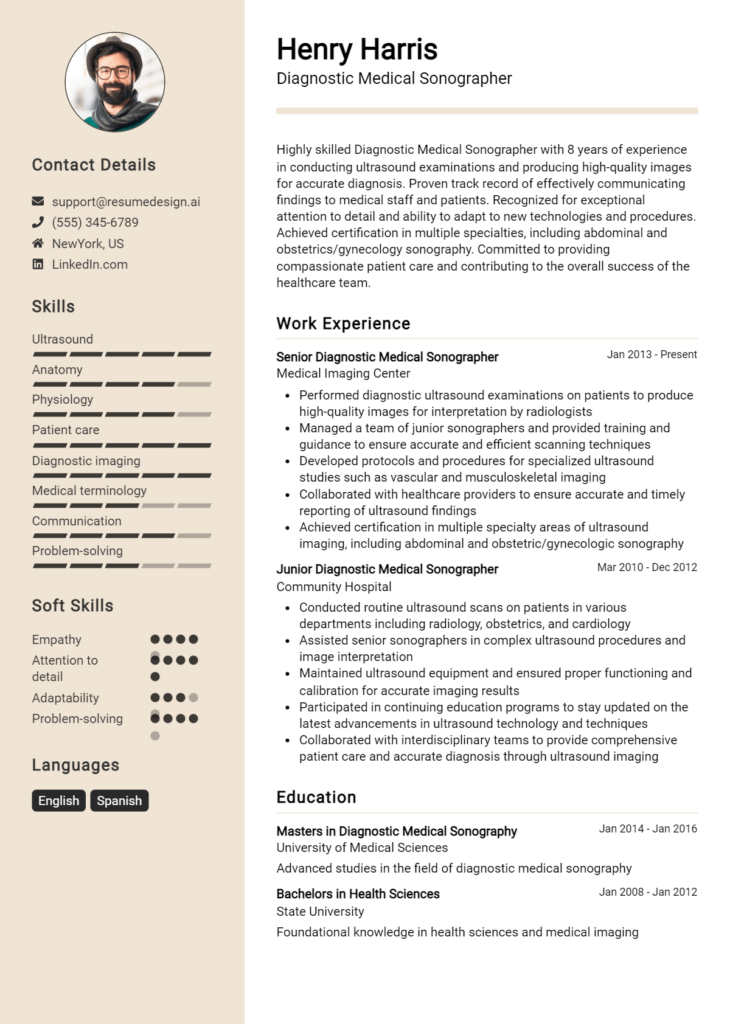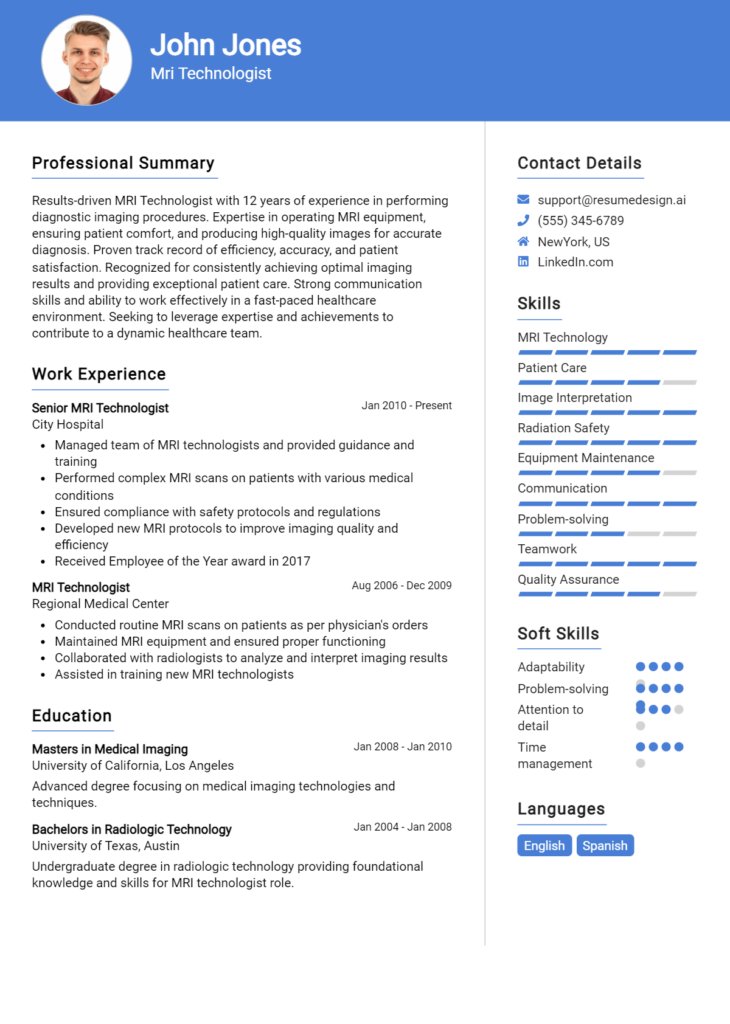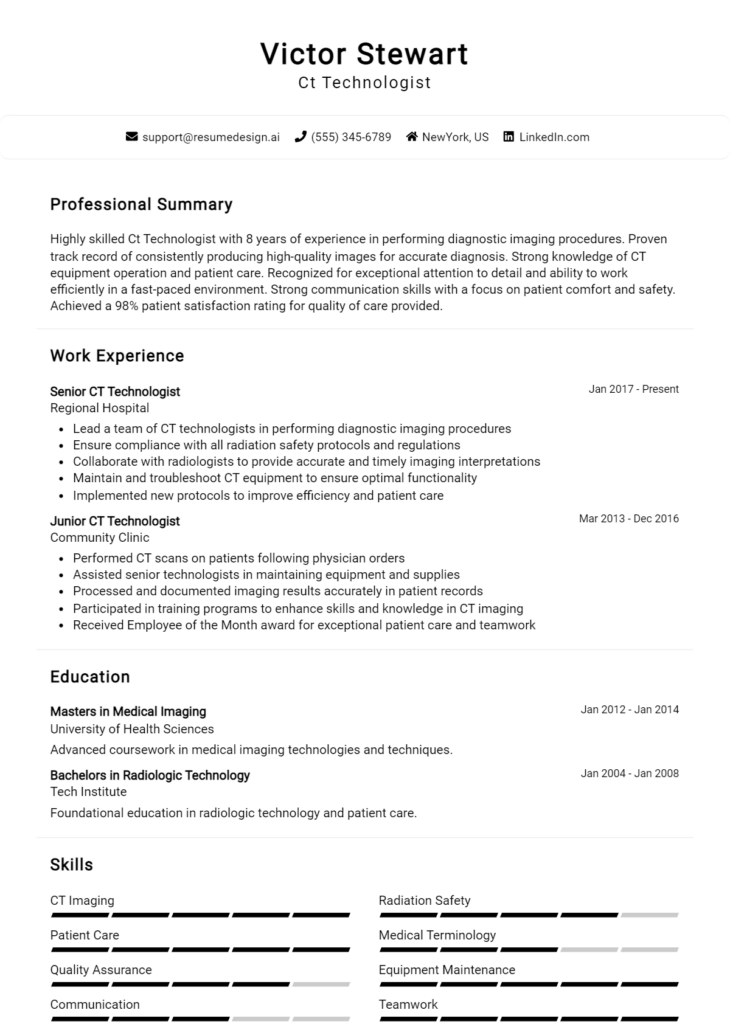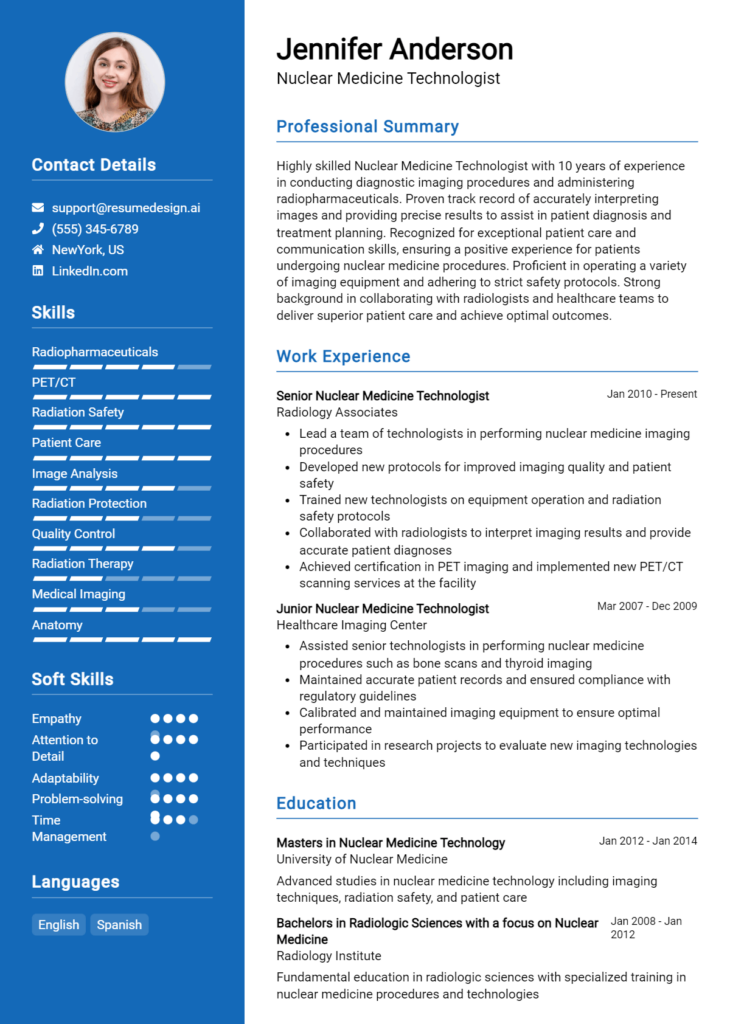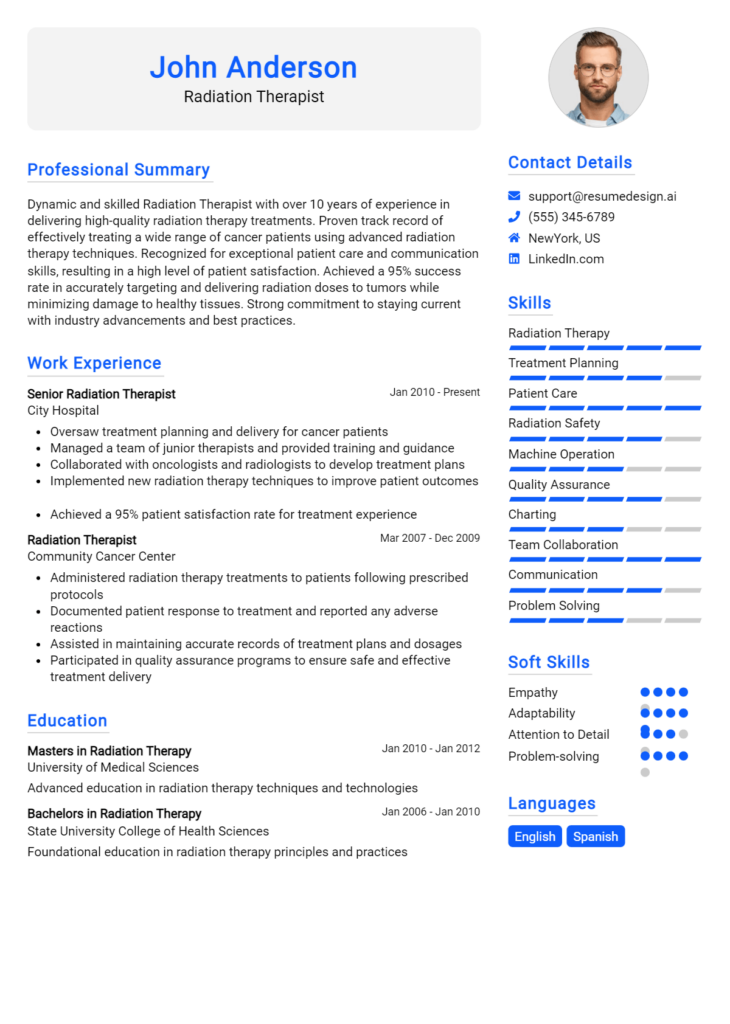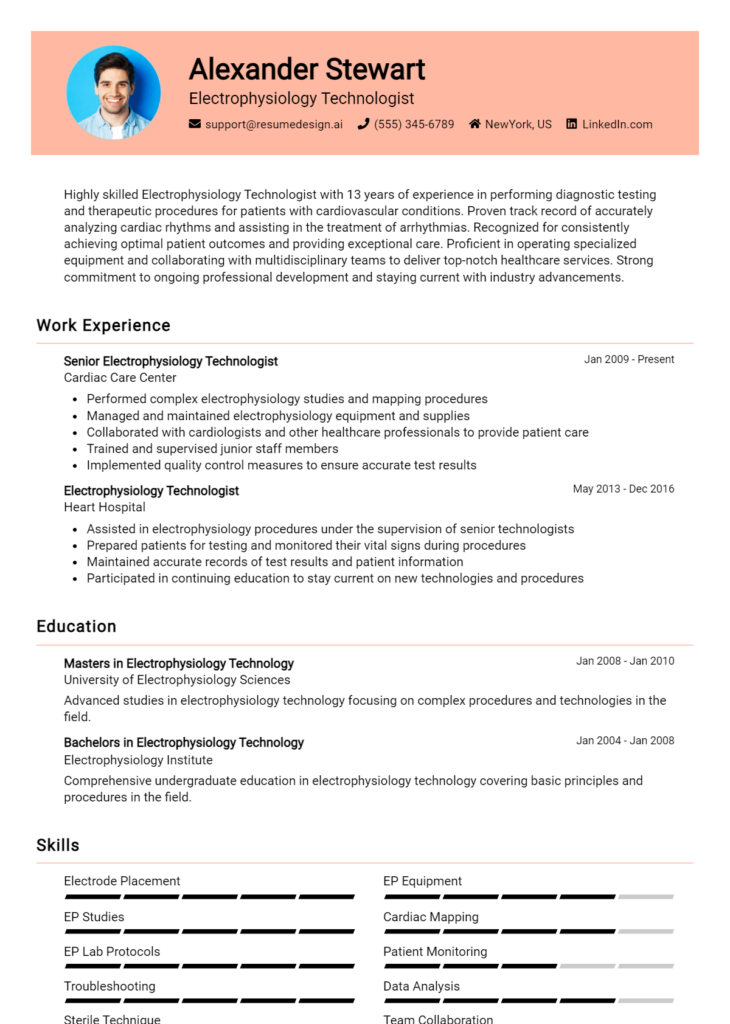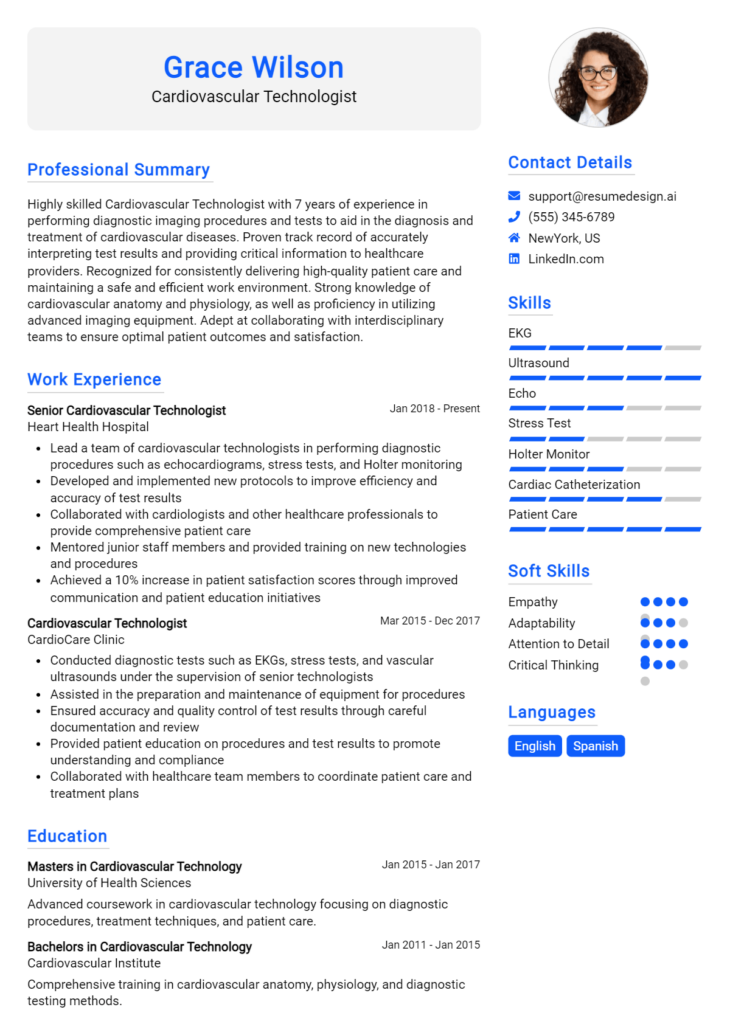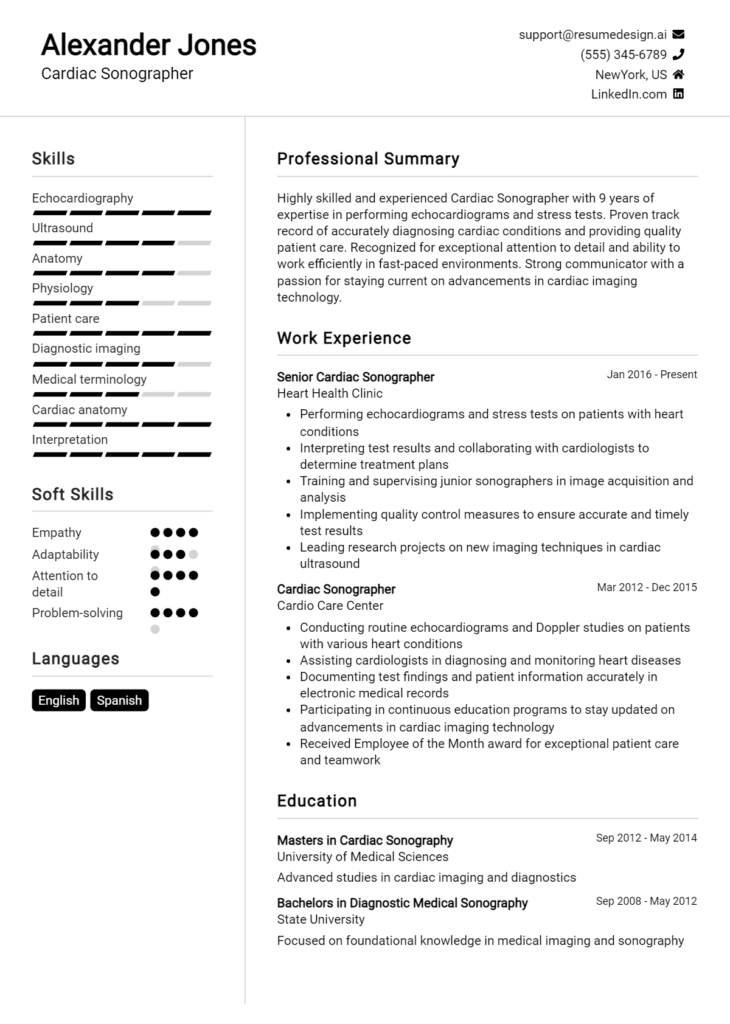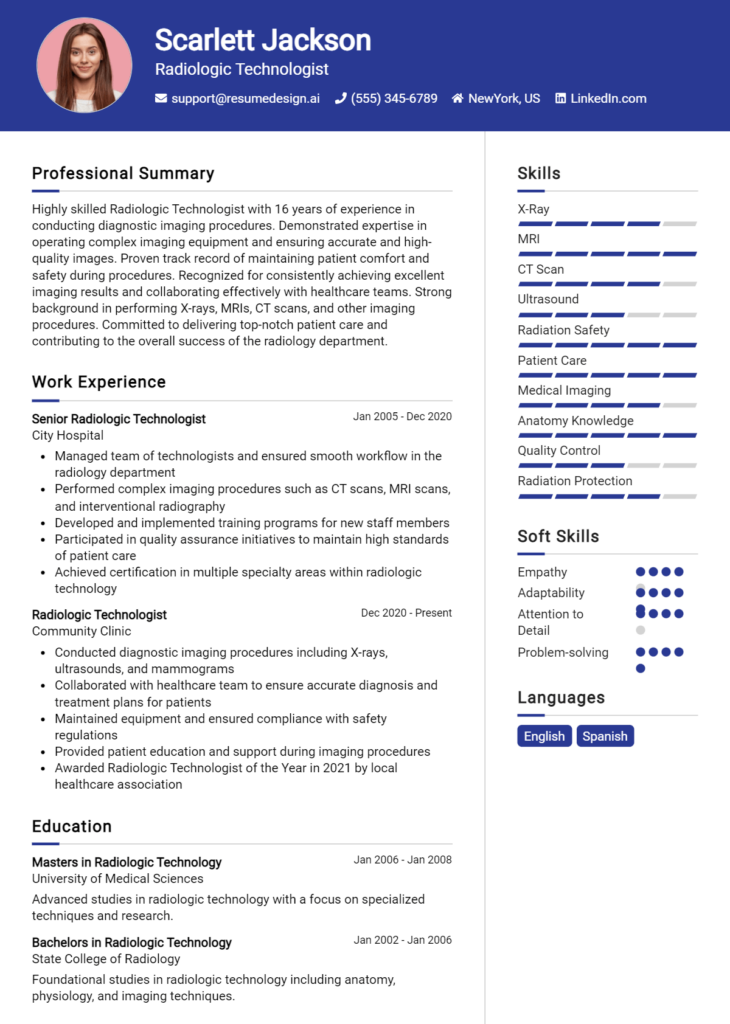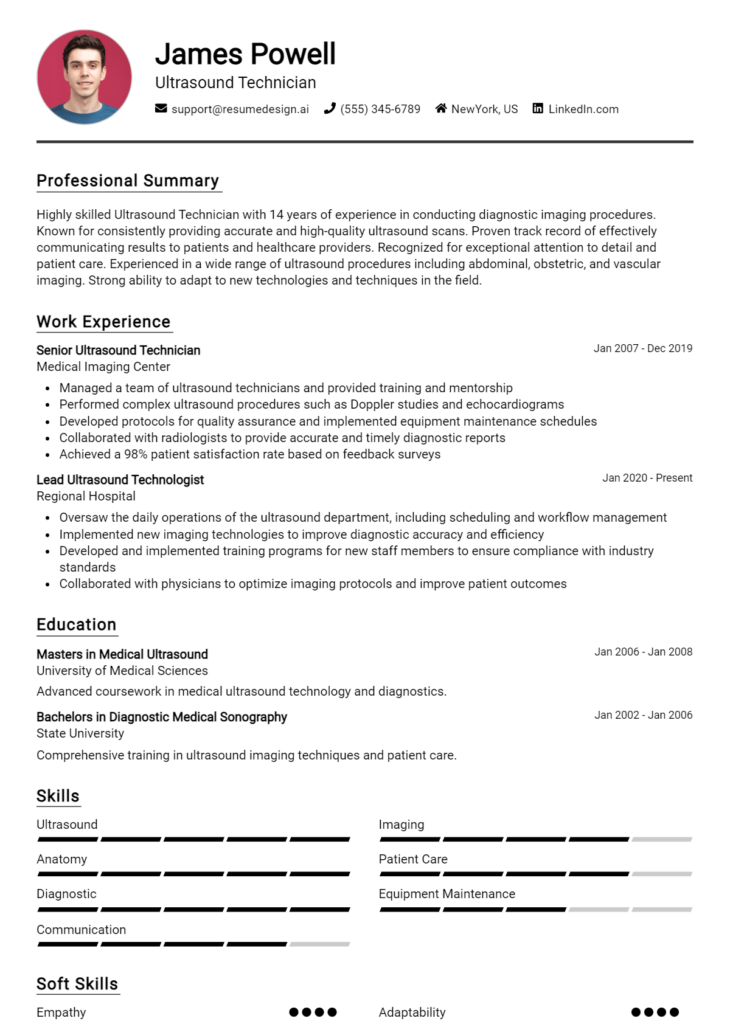Cytotechnologist Core Responsibilities
Cytotechnologists play a crucial role in the healthcare continuum by examining cellular samples to detect abnormalities such as cancer. Their core responsibilities include preparing and analyzing specimens, maintaining laboratory equipment, and collaborating with pathologists. Essential skills encompass technical proficiency, operational efficiency, and strong problem-solving abilities, enabling them to bridge laboratory functions with clinical departments. These competencies ensure accurate diagnoses, directly contributing to patient outcomes and organizational goals. A well-structured resume can effectively highlight these qualifications, showcasing a candidate's readiness for the role.
Common Responsibilities Listed on Cytotechnologist Resume
- Prepare and stain cytological specimens for examination.
- Examine and interpret cellular samples under a microscope.
- Document findings and maintain accurate records.
- Collaborate with pathologists to discuss diagnostic results.
- Follow laboratory protocols and safety regulations.
- Perform quality control checks on laboratory processes.
- Assist in research projects and clinical trials.
- Maintain laboratory equipment and troubleshoot issues.
- Educate healthcare staff on cytology and laboratory procedures.
- Stay updated on advancements in cytotechnology.
- Participate in continuing education and professional development.
High-Level Resume Tips for Cytotechnologist Professionals
In the competitive field of cytotechnology, a well-crafted resume serves as a vital tool for job seekers. It often represents the first impression a candidate makes on a potential employer, showcasing not only their qualifications but also their commitment to the profession. A strong resume should effectively reflect both technical skills and notable achievements, demonstrating why the candidate is the ideal choice for the role. This guide aims to provide practical and actionable resume tips specifically tailored for Cytotechnologist professionals, ensuring that your resume stands out in a crowded job market.
Top Resume Tips for Cytotechnologist Professionals
- Tailor your resume to match the job description, using keywords and phrases that reflect the specific requirements of the position.
- Highlight relevant experience in cytotechnology, including internships, clinical rotations, and previous job roles that demonstrate your expertise.
- Quantify your achievements by including metrics, such as the number of specimens processed, accuracy rates, or improvements in lab efficiency.
- Showcase industry-specific skills, such as proficiency in microscopy, laboratory techniques, and familiarity with quality control protocols.
- Include certifications and licenses relevant to cytotechnology, ensuring they are prominently displayed in your qualifications section.
- Utilize a clean, professional format that enhances readability, making it easy for hiring managers to find key information quickly.
- Incorporate a summary statement at the beginning of your resume that encapsulates your experience and career goals in cytotechnology.
- Leverage soft skills such as attention to detail, analytical thinking, and effective communication, which are essential in this field.
- Proofread your resume multiple times to eliminate any spelling or grammatical errors, as attention to detail is crucial in cytotechnology.
By implementing these tips, Cytotechnologist professionals can significantly enhance their resumes and increase their chances of landing a job in their desired field. A well-optimized resume not only highlights qualifications and experiences but also conveys professionalism and readiness to excel in a vital healthcare role.
Why Resume Headlines & Titles are Important for Cytotechnologist
In the competitive field of cytotechnology, a well-crafted resume headline or title plays a crucial role in capturing the attention of hiring managers. A strong headline can serve as an immediate hook, succinctly summarizing a candidate's key qualifications and setting the tone for the rest of the resume. By presenting a clear, impactful phrase that directly relates to the job being applied for, candidates can enhance their chances of making a lasting impression. A concise and relevant headline not only showcases essential skills and experiences but also indicates the applicant's suitability for the role, making it an essential element of any cytotechnologist resume.
Best Practices for Crafting Resume Headlines for Cytotechnologist
- Keep it concise: Aim for a headline that is short and to the point, ideally one to two lines.
- Be role-specific: Use terminology and phrases that are specific to cytotechnology and the job description.
- Highlight key qualifications: Include your most important skills or certifications relevant to the position.
- Use action-oriented language: Start with strong verbs or impactful adjectives that convey confidence and expertise.
- Avoid jargon: While it's important to be specific, steer clear of overly technical language that may confuse readers.
- Tailor for each application: Customize your headline for each job application to reflect the specific role and organization.
- Incorporate metrics or achievements: If applicable, include quantifiable results to showcase your accomplishments.
- Make it memorable: Aim for a headline that is not only informative but also stands out to leave a lasting impression.
Example Resume Headlines for Cytotechnologist
Strong Resume Headlines
Detail-Oriented Cytotechnologist with 5+ Years of Experience in Diagnostic Pathology
Certified Cytotechnologist Specializing in Gynecologic Cytology and Molecular Techniques
Results-Driven Cytotechnologist Committed to Quality Assurance and Patient Care
Weak Resume Headlines
Cytotechnologist Looking for Job
Experienced Professional in Health Care
The strong headlines are effective because they are specific, showcasing the candidate's experience and expertise in a clear and direct manner. They highlight the relevant skills and achievements that make the applicant a suitable fit for the cytotechnologist role. In contrast, the weak headlines fail to impress as they are vague and generic, lacking the necessary detail to convey the candidate's qualifications or unique value. Such headlines do not provide hiring managers with enough information to spark interest, ultimately diminishing the applicant's chances of standing out in a competitive job market.
Writing an Exceptional Cytotechnologist Resume Summary
A well-crafted resume summary is essential for a Cytotechnologist as it serves as the first impression for hiring managers. This brief yet impactful section succinctly highlights key skills, relevant experience, and significant accomplishments, allowing candidates to quickly capture attention in a competitive job market. An effective summary not only showcases what the candidate brings to the table but also aligns closely with the specific requirements of the job they are applying for. By remaining concise and focused, it sets the tone for the rest of the resume, making it vital for job seekers to invest time in crafting a compelling summary.
Best Practices for Writing a Cytotechnologist Resume Summary
- Quantify Achievements: Use numbers to demonstrate the impact of your work, such as the number of samples processed or accuracy rates.
- Focus on Specific Skills: Highlight technical skills and methodologies relevant to cytotechnology, such as proficiency in specific staining techniques or experience with laboratory equipment.
- Tailor for the Job Description: Customize your summary to reflect the specific requirements and desired qualifications mentioned in the job posting.
- Use Action Verbs: Start sentences with strong action verbs to convey confidence and proactivity.
- Showcase Relevant Experience: Emphasize your years of experience or any specialized training that directly relates to the position.
- Incorporate Industry Keywords: Use terminology common in the cytotechnology field to pass through applicant tracking systems and resonate with hiring managers.
- Keep it Concise: Aim for 2-4 sentences that encapsulate your qualifications without overwhelming the reader.
- Highlight Soft Skills: Mention important soft skills, such as attention to detail and communication, that are crucial in a laboratory environment.
Example Cytotechnologist Resume Summaries
Strong Resume Summaries
Dedicated Cytotechnologist with over 5 years of experience in screening and interpreting cytological specimens, achieving a diagnostic accuracy rate of 98%. Proficient in liquid-based cytology and adept at utilizing advanced laboratory technology to enhance workflow efficiency.
Detail-oriented Cytotechnologist skilled in fine-needle aspiration biopsies and cell block preparation. Successfully reduced specimen turnaround time by 30% through the implementation of a new tracking system, improving departmental productivity.
Certified Cytotechnologist with a robust background in gynecological and non-gynecological cytology. Recognized for exceptional communication skills, successfully collaborating with multidisciplinary teams to improve patient outcomes and streamline reporting processes.
Weak Resume Summaries
Cytotechnologist with experience in a laboratory setting. Looking for a new opportunity to utilize my skills.
Hardworking professional in cytotechnology. I have done various tasks in the lab and want to contribute to a healthcare team.
The strong resume summaries are considered effective because they are specific, quantify achievements, and directly relate to the role of a Cytotechnologist, showcasing the candidate's unique value. In contrast, the weak summaries lack detail, fail to provide measurable outcomes, and come across as generic, making it difficult for hiring managers to discern the candidate's qualifications or impact.
Work Experience Section for Cytotechnologist Resume
The work experience section of a Cytotechnologist resume is critical as it provides a comprehensive overview of the candidate's professional journey, showcasing their technical skills, leadership capabilities, and commitment to delivering high-quality results. This section not only highlights the candidate's hands-on experience in cytology but also emphasizes their ability to work collaboratively within teams and manage complex laboratory processes. By quantifying achievements and aligning their experience with industry standards, candidates can effectively demonstrate their value to potential employers, making this section a key component of a successful resume.
Best Practices for Cytotechnologist Work Experience
- Use specific technical terminology relevant to cytotechnology to demonstrate expertise.
- Quantify achievements with measurable outcomes, such as increased accuracy rates or reduced turnaround times.
- Highlight leadership roles and initiatives taken to improve laboratory processes.
- Showcase collaboration with multidisciplinary teams to emphasize teamwork skills.
- Detail the use of advanced technologies or methodologies in cytology.
- Include any certifications or training relevant to the roles held.
- Tailor experience descriptions to align with the job description of the position being applied for.
- Maintain a clear and concise format for easy readability and impact.
Example Work Experiences for Cytotechnologist
Strong Experiences
- Led a team of 5 cytotechnologists in implementing a new digital imaging system, resulting in a 30% increase in diagnostic accuracy.
- Conducted over 2,000 cervical cytology screenings per year, achieving a 98% satisfaction rate from referring physicians.
- Collaborated with pathologists to develop a quality assurance program, reducing false-positive rates by 15% over two years.
- Trained and mentored junior staff, enhancing team productivity and ensuring compliance with industry standards.
Weak Experiences
- Worked in a cytology lab for several years.
- Performed various tests and assisted in reporting results.
- Helped with team projects occasionally.
- Participated in lab activities and maintained equipment.
The examples classified as strong experiences demonstrate clear achievements through quantifiable results, technical leadership, and effective collaboration. They provide specific details that reflect the candidate's contributions and impact on the laboratory's success. In contrast, the weak experiences lack detail and specificity, failing to convey the candidate's skills or accomplishments, making them less compelling to potential employers.
Education and Certifications Section for Cytotechnologist Resume
The education and certifications section of a Cytotechnologist resume is crucial in demonstrating the candidate's foundational knowledge and expertise in the field. This section not only highlights the academic background necessary for cytotechnology but also showcases industry-relevant certifications that validate the candidate's skills and commitment to the profession. By providing details about relevant coursework, specialized training, and continuous learning efforts, candidates can significantly enhance their credibility and alignment with the specific requirements of the job role, making them more attractive to potential employers.
Best Practices for Cytotechnologist Education and Certifications
- Include relevant degrees such as a Bachelor’s or Master’s in Cytotechnology or a related field.
- List certifications from accredited bodies, like the American Society for Clinical Pathology (ASCP).
- Highlight any specialized training in advanced techniques or technologies used in cytology.
- Provide details of relevant coursework, such as histology, cell biology, and laboratory management.
- Keep the information current by updating certifications and educational achievements regularly.
- Emphasize continuous education efforts, such as workshops or courses related to emerging cytotechnology trends.
- Use clear formatting to make the section easy to read and visually appealing.
- Tailor the content to align with the specific job description and requirements of the position being sought.
Example Education and Certifications for Cytotechnologist
Strong Examples
- Bachelor of Science in Cytotechnology, University of Health Sciences, 2020
- Certified Cytotechnologist (CT) through the American Society for Clinical Pathology (ASCP)
- Completion of Advanced Cytopathology Techniques course, 2021
- Relevant Coursework: Molecular Biology, Cellular Pathology, and Diagnostic Cytology
Weak Examples
- Associate Degree in General Studies, Community College, 2018
- Certification in Basic Laboratory Techniques (outdated, 2015)
- High School Diploma with no specific mention of science coursework
- Certification in Medical Billing and Coding (not relevant to cytotechnology)
The strong examples listed above demonstrate relevant academic achievements and certifications that directly relate to the Cytotechnologist role, showcasing the candidate's preparedness and expertise in the field. In contrast, the weak examples reflect qualifications that are either outdated, irrelevant, or do not align with the specific requirements of a Cytotechnologist position, which could potentially detract from the candidate's overall appeal to hiring managers.
Top Skills & Keywords for Cytotechnologist Resume
As a Cytotechnologist, possessing a well-rounded set of skills is crucial for success in this specialized role. A strong resume that highlights both hard and soft skills can significantly enhance your chances of landing an interview. Hard skills demonstrate your technical expertise and knowledge specific to cytotechnology, while soft skills reflect your ability to work effectively in a team, communicate clearly, and manage time efficiently. Tailoring your resume to include these essential skills not only showcases your qualifications but also aligns with employer expectations. This comprehensive approach helps to create a compelling narrative about your capabilities and experiences, making your application stand out.
Top Hard & Soft Skills for Cytotechnologist
Soft Skills
- Attention to detail
- Communication skills
- Critical thinking
- Problem-solving
- Team collaboration
- Time management
- Adaptability
- Emotional intelligence
- Patience
- Organization
Hard Skills
- Cytology preparation techniques
- Microscopy expertise
- Laboratory equipment proficiency
- Knowledge of pathology
- Specimen collection and processing
- Quality control procedures
- Familiarity with laboratory safety protocols
- Computer literacy for data management
- Experience with cytological screening
- Understanding of regulatory compliance
By emphasizing these skills on your resume, along with relevant work experience, you can effectively convey your readiness for the challenges of a Cytotechnologist position.
Stand Out with a Winning Cytotechnologist Cover Letter
Dear [Hiring Manager's Name],
I am writing to express my interest in the Cytotechnologist position at [Company/Organization Name] as advertised on [Job Posting Source]. With a Bachelor’s degree in Cytotechnology and over [X years] of clinical experience in a high-volume laboratory setting, I am confident in my ability to contribute effectively to your team. My extensive training in analyzing cellular samples and my commitment to high-quality patient care equip me to excel in this role.
Throughout my career, I have honed my skills in the preparation and examination of cytological specimens, utilizing advanced techniques to identify cellular abnormalities. My experience includes working with a diverse range of samples, including gynecological and non-gynecological specimens. I take pride in my attention to detail and my ability to provide accurate and timely diagnoses, which are critical to patient outcomes. Additionally, I am proficient in utilizing laboratory information systems and maintaining compliance with all regulatory and safety standards.
I am particularly drawn to [Company/Organization Name] because of your commitment to innovative diagnostic solutions and your focus on advancing patient care. I am eager to bring my expertise in cytology to your esteemed organization and collaborate with a team that prioritizes excellence in laboratory services. I am excited about the opportunity to contribute to your mission and help drive advancements in cytological practices.
Thank you for considering my application. I look forward to the possibility of discussing how my skills and experiences align with the goals of [Company/Organization Name]. I am available for an interview at your convenience and can be reached at [Your Phone Number] or [Your Email Address].
Sincerely,
[Your Name]
[Your Address]
[City, State, Zip]
[Your LinkedIn Profile or Professional Website]
Common Mistakes to Avoid in a Cytotechnologist Resume
Crafting a compelling resume is essential for cytotechnologists seeking to advance their careers or land their first position in this specialized field. However, many candidates unknowingly make common mistakes that can hinder their chances of standing out to potential employers. Understanding these pitfalls can help you create a more effective resume that showcases your skills, experiences, and qualifications. Below are some frequent errors to avoid when putting together your cytotechnologist resume:
Lack of Specificity: Using vague language or general terms can weaken your resume. Be specific about your experiences, such as the types of specimens you have worked with or the technologies you have utilized.
Ignoring Keywords: Many employers use applicant tracking systems (ATS) to filter resumes. Failing to include relevant keywords from the job description can result in your resume being overlooked.
Inconsistent Formatting: A resume that lacks a consistent format can be difficult to read and unprofessional. Ensure that fonts, bullet points, and spacing are uniform throughout the document.
Overly Long Resumes: While it's important to highlight your qualifications, a resume should typically be one page for entry-level positions and no more than two pages for experienced candidates. Be concise and prioritize the most relevant information.
Neglecting Soft Skills: While technical skills are crucial, ignoring soft skills like communication, teamwork, and problem-solving can be a mistake. Employers often look for candidates who can collaborate effectively and contribute to a positive work environment.
Failure to Quantify Achievements: Instead of just listing responsibilities, quantify your accomplishments. For example, mention how many samples you processed daily or any improvements in accuracy you achieved.
Not Tailoring the Resume: Sending the same generic resume for every application can be detrimental. Tailor your resume to each position by emphasizing the experiences and skills that align with the specific job requirements.
Grammatical Errors and Typos: Simple mistakes in spelling or grammar can create a negative impression. Always proofread your resume multiple times or have someone else review it before submission to catch any errors.
Conclusion
As a Cytotechnologist, your role is crucial in the early detection of diseases, particularly cancer, through the examination of cellular samples. The skills and qualifications required for this profession include a strong foundation in biological sciences, attention to detail, and proficiency in laboratory techniques. Throughout your career, you will engage in microscopic analysis, collaborate with pathologists, and ensure the accuracy of test results, all of which are vital for patient diagnosis and treatment.
Given the competitive nature of the healthcare field, having a well-structured resume that highlights your expertise and experience is essential. It’s important to showcase your educational background, certifications, and practical experiences in a way that stands out to potential employers.
Now is the perfect time to review and enhance your Cytotechnologist resume. Utilize the available tools such as resume templates to create a polished document that reflects your credentials. Consider using the resume builder for an easy and efficient way to personalize your resume. Additionally, explore resume examples for inspiration and cover letter templates to complement your application.
Take action today—revamp your resume and present yourself as the outstanding Cytotechnologist you are!

